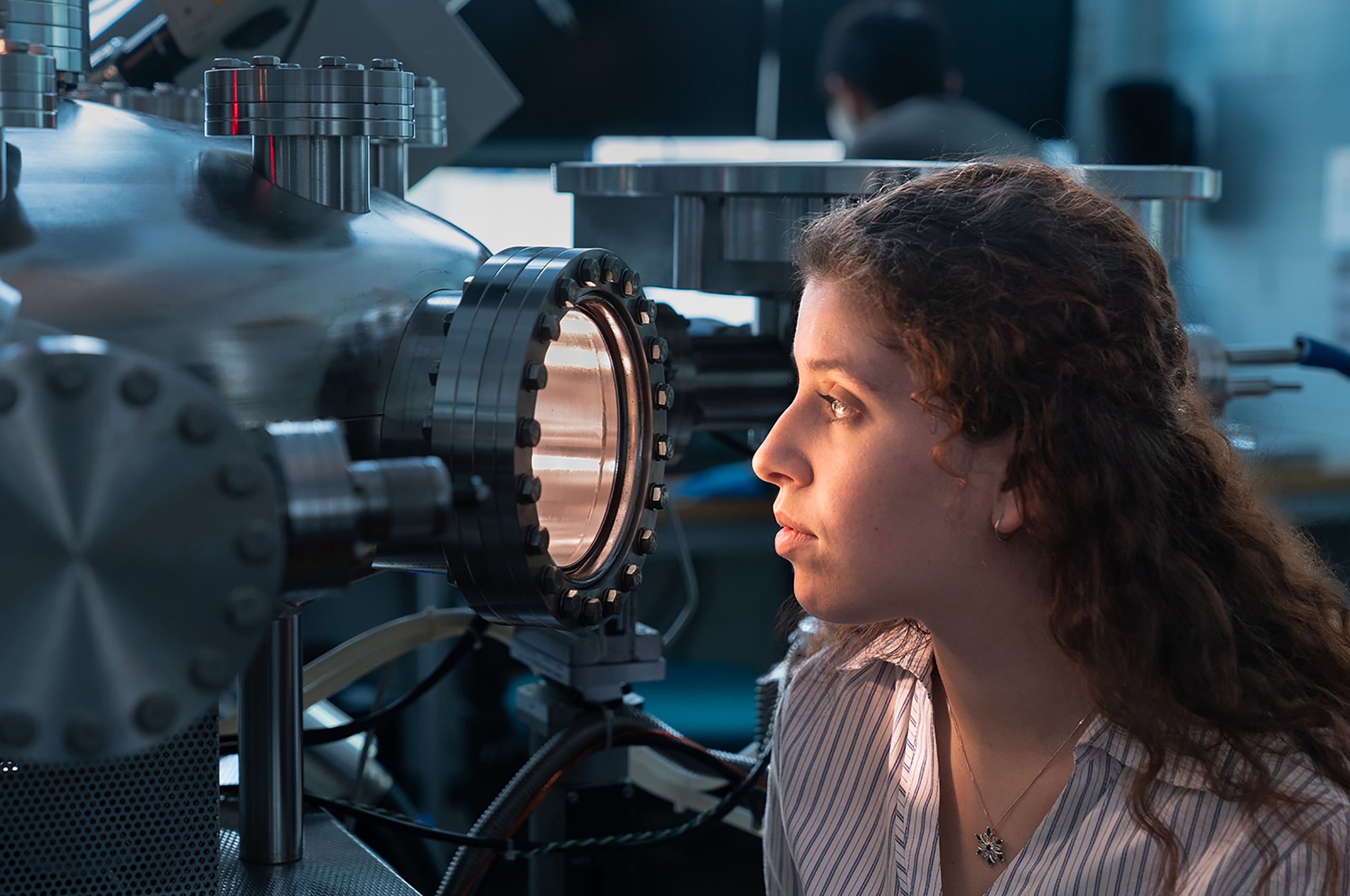About the Department of Mathematical and Physical Sciences

The Department of Mathematical and Physical Sciences has a proud history of teaching and research in data science, mathematics, statistics and physics.
Our Department is part of the School of Computing, Engineering and Mathematical Sciences.
Our programs – offered at La Trobe’s Melbourne and Bendigo campuses – equip graduates with the skills they need for successful careers. We teach students how to problem solve and adapt to rapid advances in technology and the sciences.
We offer majors in Data Science, Mathematics, Statistics and Physics. These majors can be studied together, or in conjunction with other study areas. Students also have the opportunity to undertake Honours and postgraduate research, giving them the skills that they need to work as active members of a research group.
Our research in mathematical sciences is rated above world standard by the Australian Research Council’s Excellence in Research for Australia. Our research in physical sciences is rated well above world standard in condensed matter and optical physics.
Our researchers collaborate with scientists in medicine, chemistry, health, psychology, engineering, and computing to form multi-disciplinary teams that advance human health and wellbeing, and develop the technologies of the future.

Our dedicated teaching staff are committed to providing our students with an excellent experience. We have demonstrated innovation and impact in pure and applied research in quantum computing, X-ray science, materials science and modelling infectious diseases.
Supportive learning
The Department of Mathematical and Physical Sciences has a unique, and supportive, approach to teaching that offers students greater hands-on experience and guidance from academic staff.
Our Statistics program was the first to be accredited by the Statistical Society of Australia. We are also proud to be a Joint Venture Partner of the Australian Mathematical Sciences Institute. Our Physics program is accredited by the Australian Institute of Physics.
Our staff have been recognised for their outstanding and innovative teaching, receiving university awards and national citations.
Our Data Science, Mathematics, Statistics and Physics programs feature small group activities in preference to large lectures. We strive for continual subject improvement based on student feedback.
We also prepare our own bespoke teaching materials for most subjects and make them freely available to students – so they can avoid having to buy expensive textbooks that are not solely related to their studies.
Our Physics program explores classical and modern physical phenomena that underpin the physical sciences and engineering. We provide students with a practical experience from first year and offer an advanced laboratory skills program in the final year, which is closely aligned to our research expertise in condensed matter physics and optical physics.
All our students are supported by the La Trobe University Maths Hub and Science Hub, dedicated services offered to those who need help in Mathematics, Statistics or Physics.
Find out more about our student experience.
Pure and applied research
The Department of Mathematical and Physical Sciences excels in both pure and applied research.
We recognise the importance of advancing data science, mathematics, statistics and physics, both nationally and internationally.
Our researchers also make a significant contribution to other discipline areas – including medical and health sciences, psychology, engineering and computing – with real world impact.
The Department has a proud history of hosting Australian Research Council-funded Discovery Outstanding Researcher Awards, Future Fellows, Australian Postdoctoral and Discovery Early Career Researcher fellowships.
Our researchers are also Chief Investigators on nationally competitive grants, including those funded by the Australian Research Council and the National Health and Medical Research Council.
Our research aligns with La Trobe’s research themes: Sustainable food and agriculture; Resilient environments and communities; Healthy people, families and communities; Understanding and preventing disease; and Social change and equity.
Our research is grouped into five key areas:
Our researchers develop new statistical and data science methodologies that contribute to improved modelling and inference of data in areas from the health and medical sciences, to economics and engineering.
Ranging from epidemiology and infectious diseases to integrable systems, the Department’s interests in applied mathematics have immediate applications to the world around us, while also making fundamental contributions.
Number theory, geometry, algebra, logic and graph theory are the main foci of pure mathematics in the Department. While our researchers are primarily interested in how mathematics itself works, we also collaborate across disciplines, particularly in computer science.
Quantum computing, materials science and nanotechnology are core areas of research strength. Our researchers focus on creating, understanding and controlling technologically interesting materials at the nanometer scale.
Areas of strength include synchrotron science, coherent X-ray science and biophotonics. Our researchers develop new approaches to imaging and probing materials and structures at the atomic, molecular and cellular level.
Research centre
We are also home to the Centre for Materials and Surface Science.
The Centre for Materials and Surface Science is an interdisciplinary research centre that brings together experts across physics, chemistry, materials science and engineering from La Trobe, and local and international partners. It offers Australia’s most comprehensive suite of surface science and surface analysis equipment and is an international leader in the application of machine learning for understanding very large and complex spectroscopic datasets.
Discover more about the Centre.
Find out more about the School of Computing, Engineering and Mathematical Sciences, and read our Statement of Strategic Intent.
